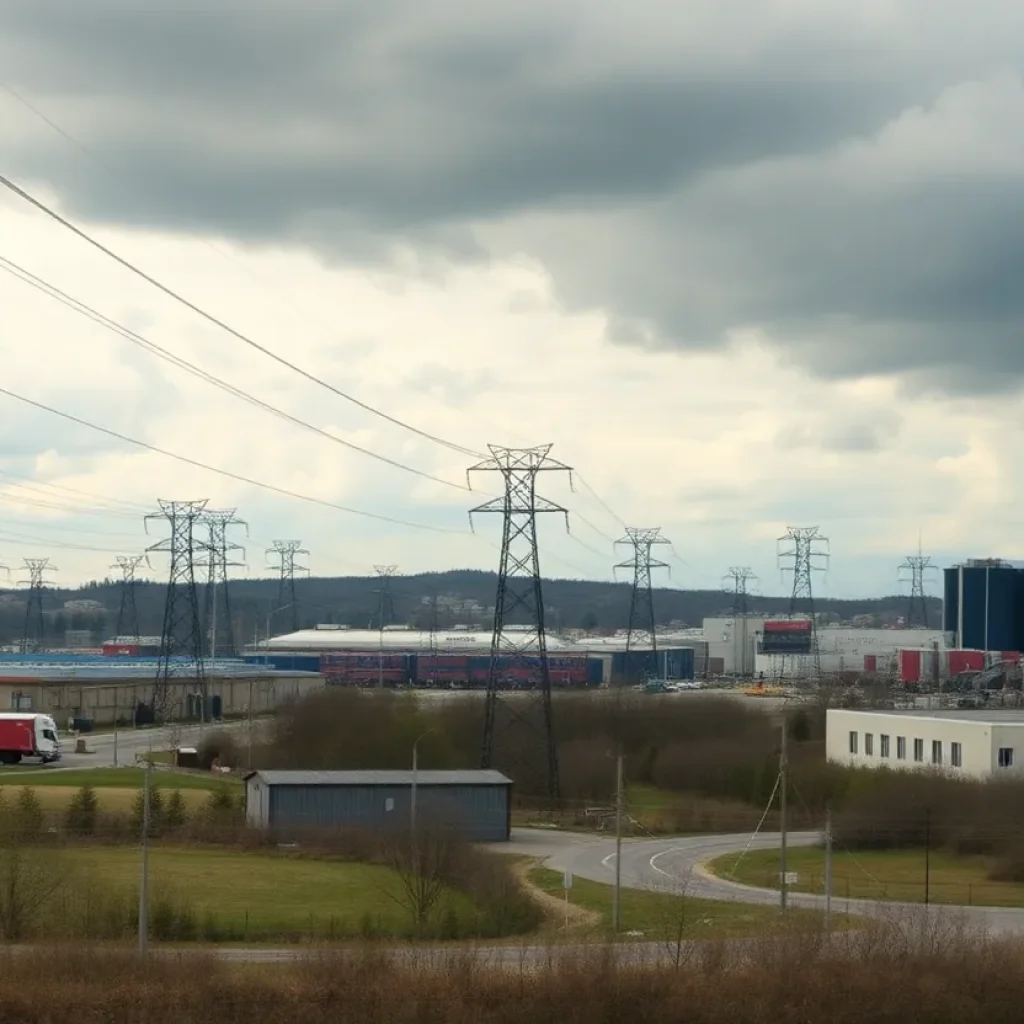

Power Supply Challenges in Tennessee
Tennessee faces significant challenges regarding its power supply, with concerns raised by U.S. Senator Bill Hagerty about the Tennessee Valley Authority (TVA) hindering economic development. The TVA’s limitations were evident during recent winter storms that led to brownouts, raising doubts among potential investors. As tech giants demand more electricity, the TVA is exploring new rate classes for data centers while navigating previous incentive issues and transparency challenges. The relationship between reliable energy and economic growth remains crucial as the state moves forward.
Chattanooga, TN – Tennessee has recently found itself in a bit of a pickle concerning economic development and power supply. U.S. Senator Bill Hagerty voiced his frustration over the Tennessee Valley Authority (TVA), stating that the TVA is now the “limiting factor” hindering new ventures in the state, which may leave many scratching their heads as they ponder the relationship between energy and growth.
Back in December 2022, Winter Storm Elliot unleashed its fury across the state, leading to several brownouts that highlighted the TVA’s shortcomings in generating sufficient electricity. It’s hard to miss how situations like these can create waves of concern among investors and communities alike. If a power provider can’t keep the lights on during a winter storm, businesses may think twice about setting up shop in Tennessee, which is definitely not the message the state wants to send.
The TVA has been trying to adapt its electricity rate classes, particularly for the high-demand adroit of the tech world—data centers. These massive power gobblers, including those from high-profile companies such as Elon Musk’s xAI, are springing up across the Tennessee Valley. While they bring the promise of tech-driven growth, they require staggering amounts of electricity, which has the TVA scrambling to find adequate power supplies.
It’s worth noting that many of these data centers are not direct customers of TVA; instead, they buy power from local utilities. Out of this mix, just two companies—CC Metals & Alloys and Core Scientific—are plugged directly into TVA’s system for their operations. This limitation may pose some complex challenges ahead for the TVA.
The TVA board has commenced discussions around developing a separate electricity rate class specifically for data centers. This delta in pricing models aims to ensure that these businesses contribute fairly to the power grid, especially since they often employ fewer workers than traditional industries. This approach will help level the playing field in terms of electricity distribution costs across different sectors.
A concrete proposal is anticipated at the May 2024 board meeting in Cookeville, where TVA directors are set to hash out these matters in detail. It’s a crucial step in trying to meet both the demands of a tech-savvy economy and the needs of traditional companies.
The TVA’s previous efforts to entice data centers and other projects have been stymied. They even halted economic incentive grants for cryptocurrency mining facilities in 2023 due to those operations failing to deliver on job creation promises. News has broken about lawsuits surrounding these incentives as well, with allegations surfacing about TVA’s supposed secrecy regarding economic grants and the low level of employment other facilities offer. One notable case involves Bitdeer, a cryptocurrency mining company in East Knoxville.
Journalist Melanie Faizer, who is also a professor, is challenging the TVA’s handling of transparency laws. It’s yet another reminder of the importance of openness when it comes to how public funds are allocated. Faizer’s inquiry aims to shed light on whether TVA’s practices truly serve the public interest.
Interestingly, the TVA is now faced with a new game plan, as they must brace themselves against potential future demands from large industrial customers like xAI, who are likely to enter demand response programs to help manage peak power periods. This development speaks volumes about how energy needs are morphing in the modern world, and how critical transparent decision-making will be in navigating these changes.
As Tennessee looks ahead, the relationship between reliable power supply and economic development will only continue to gain prominence. With 45 data centers already identified within state borders, it is evident that future engagement with this industry is essential. The goal will be to strike a balance between efficient energy production, fair electricity costs, and fostering job-rich opportunities within the region.
As the discussions unfold and developments come to light, one thing is clear: Tennessee’s path forward will require collaboration, adaptability, and a commitment to transparency as they navigate the complexities of energy demands and economic growth.
News Summary Nissan is set to cut 11,000 jobs and shut down seven manufacturing plants…
News Summary Ken Burke, a respected businessman from Chattanooga and founder of Kubota Tag Distributors,…
News Summary Tauris Sledge, a student at East Ridge High School, has been arrested for…
News Summary Recent health department inspection scores reveal significant compliance issues among local restaurants in…
News Summary Chattanooga developer Michael Kenner has withdrawn a rezoning request for a micro-home community…
News Summary The Chattanooga community is mourning the passing of Cedric Lebron 'Big Ced' Josey,…